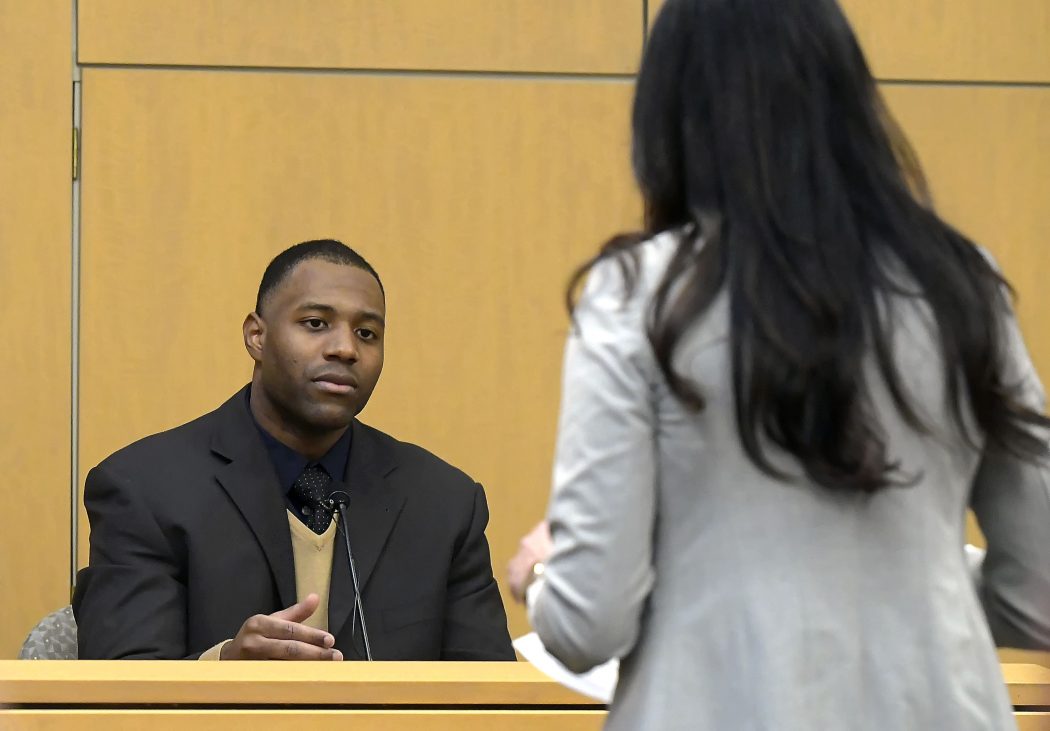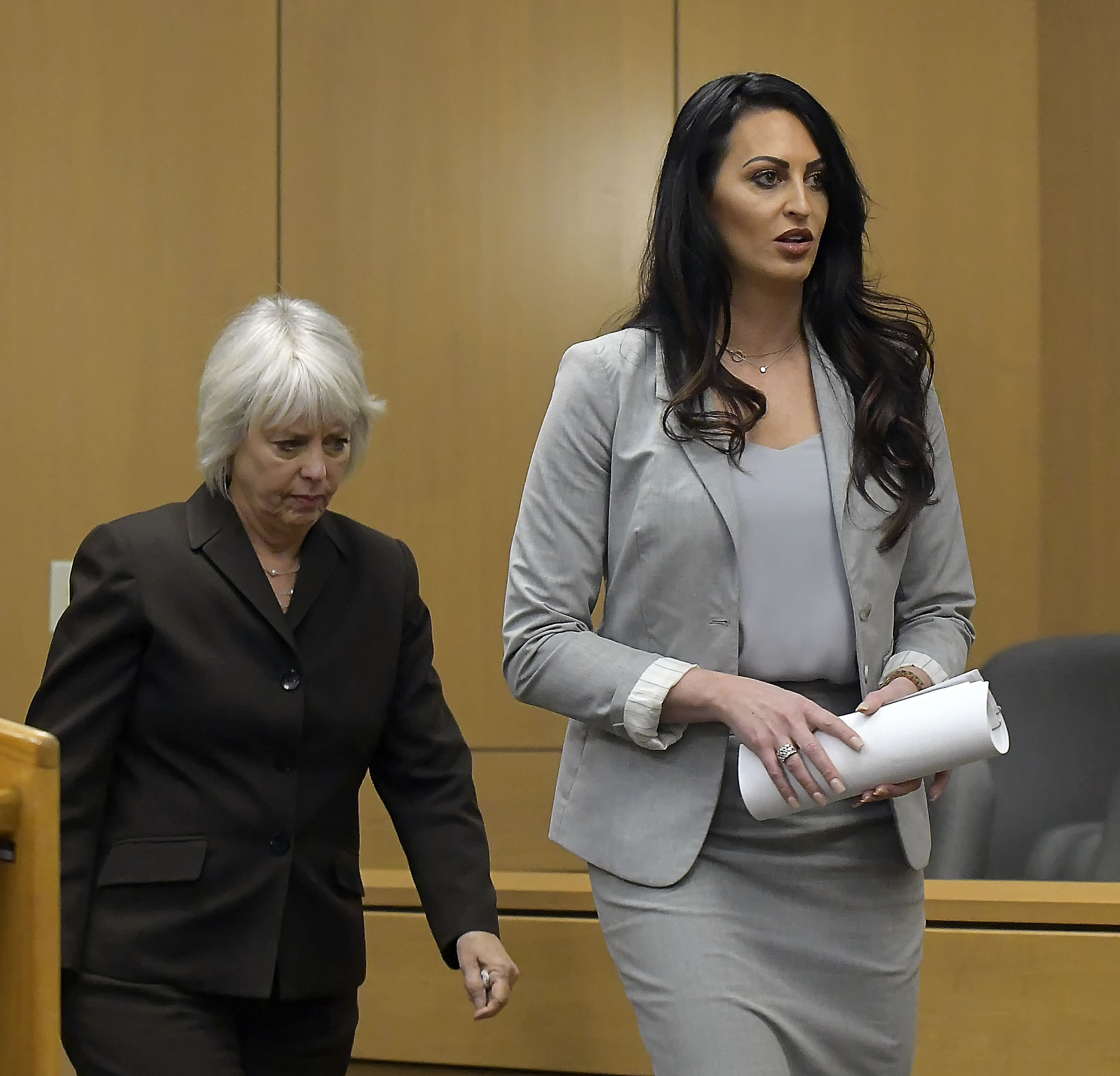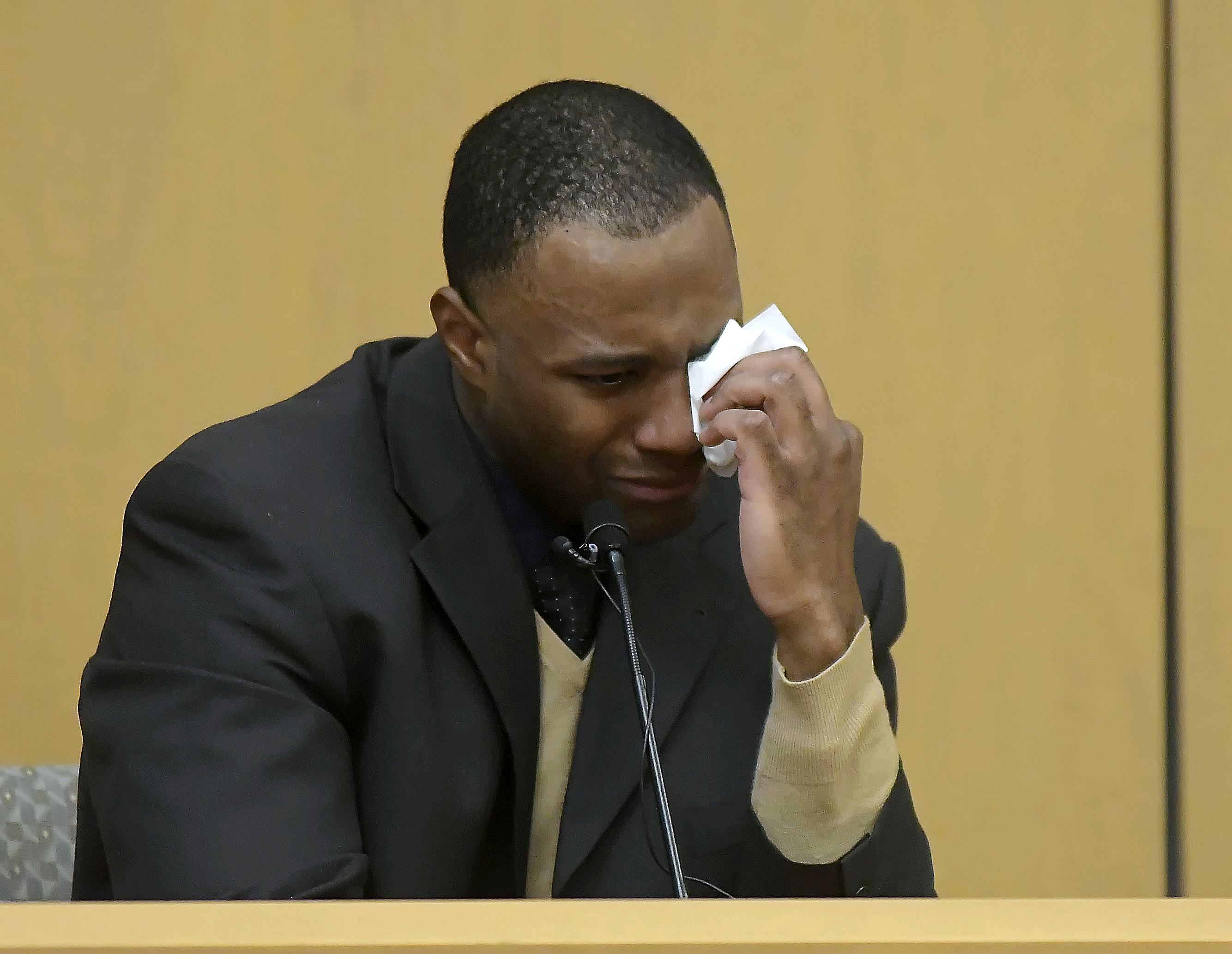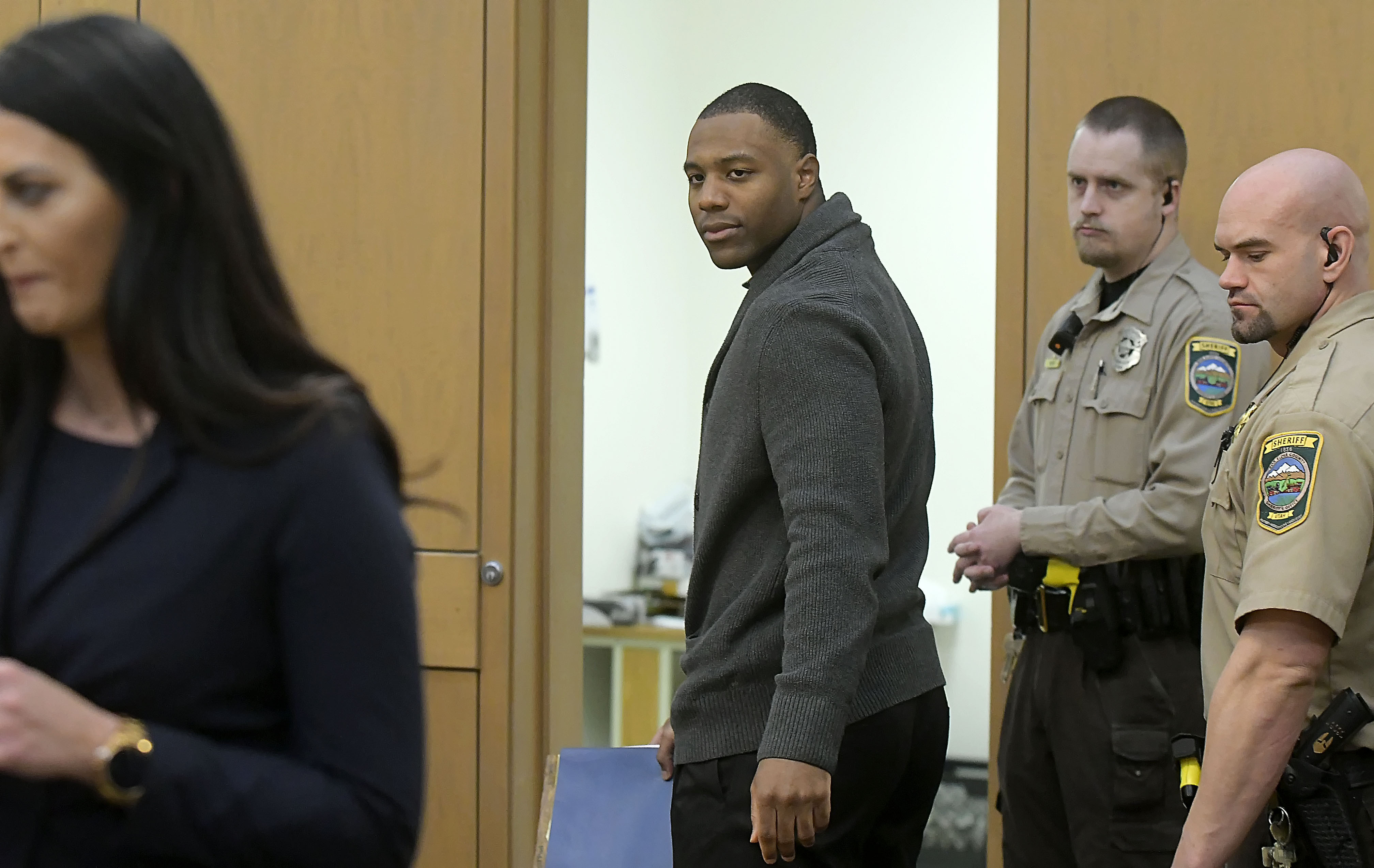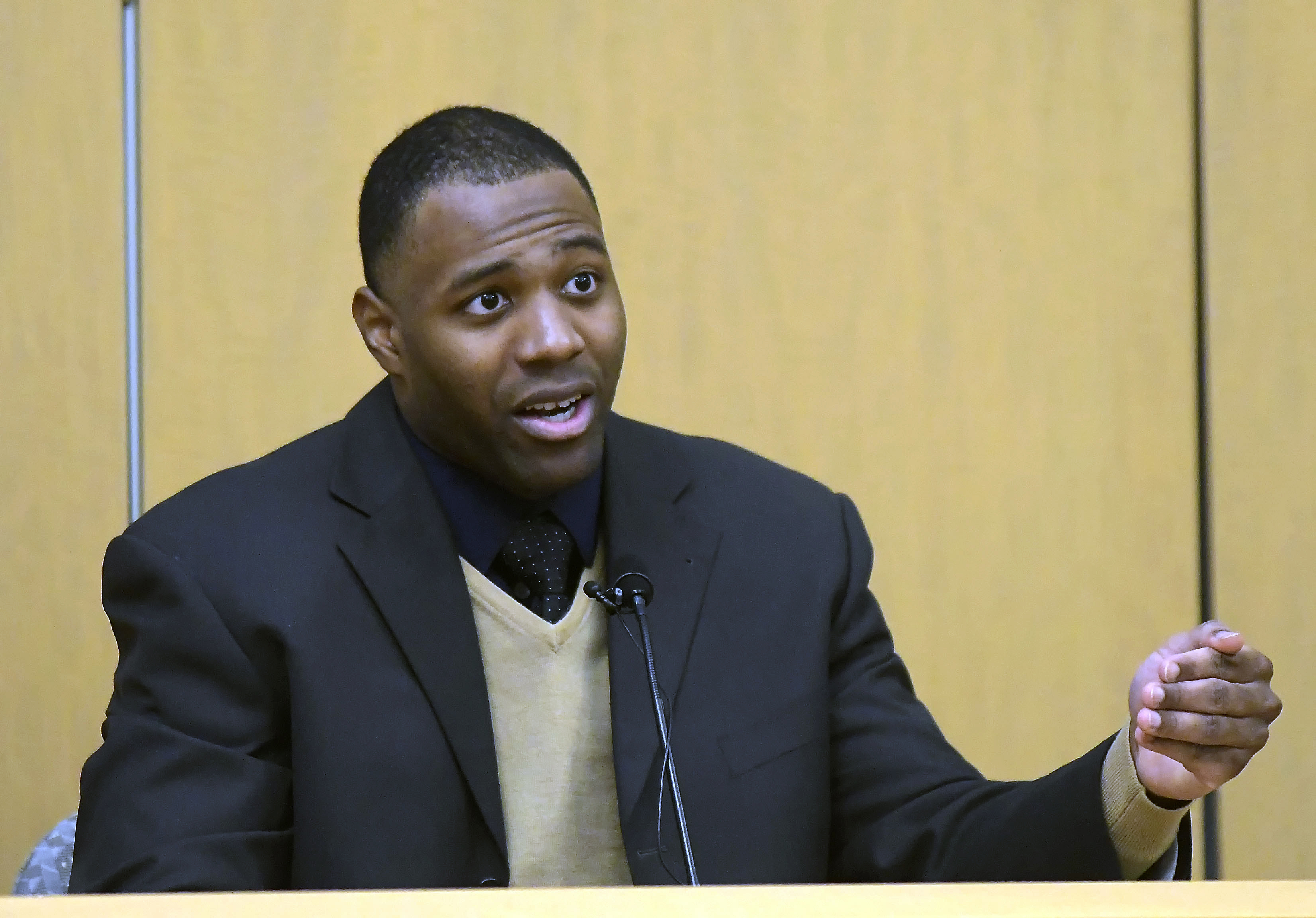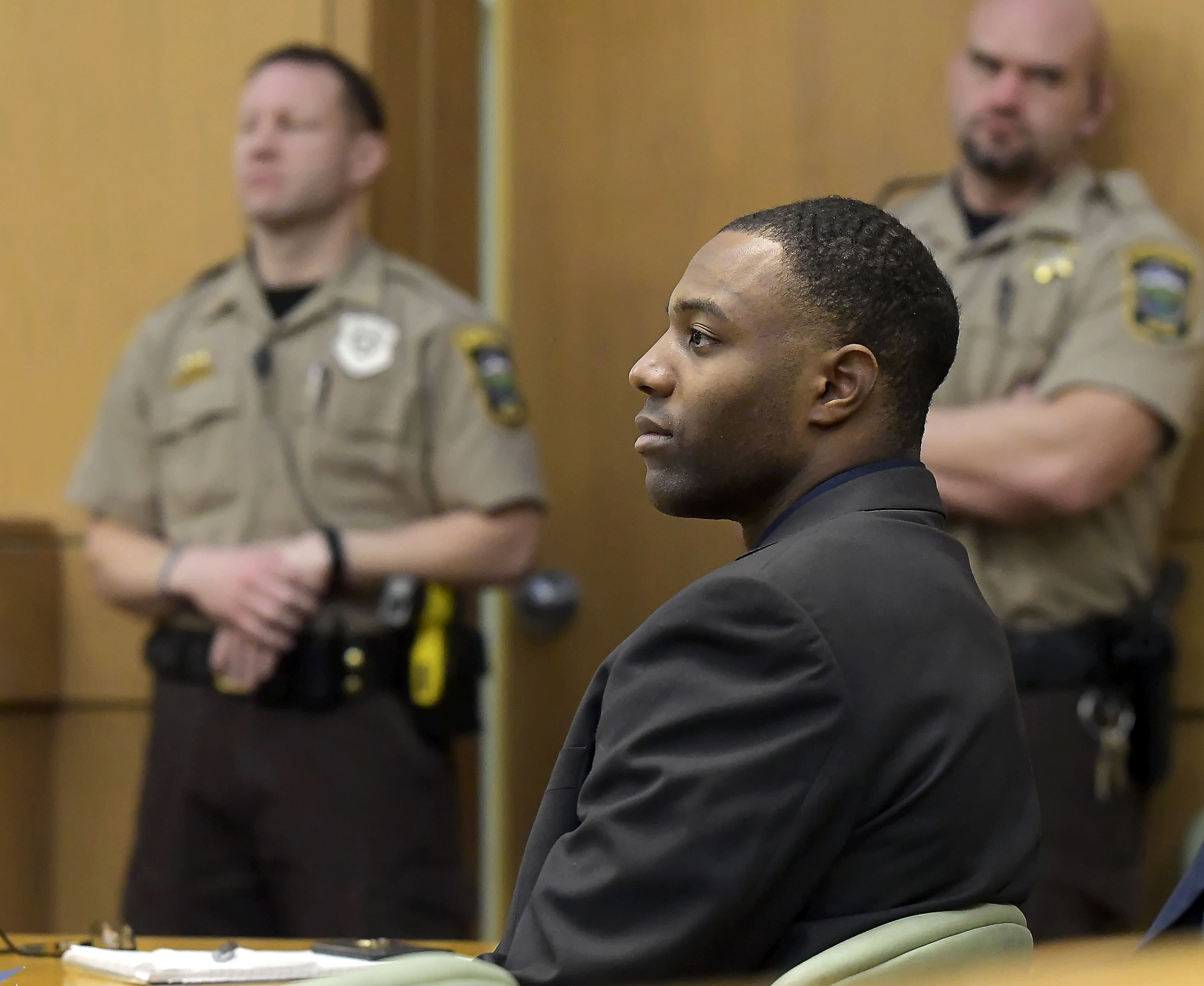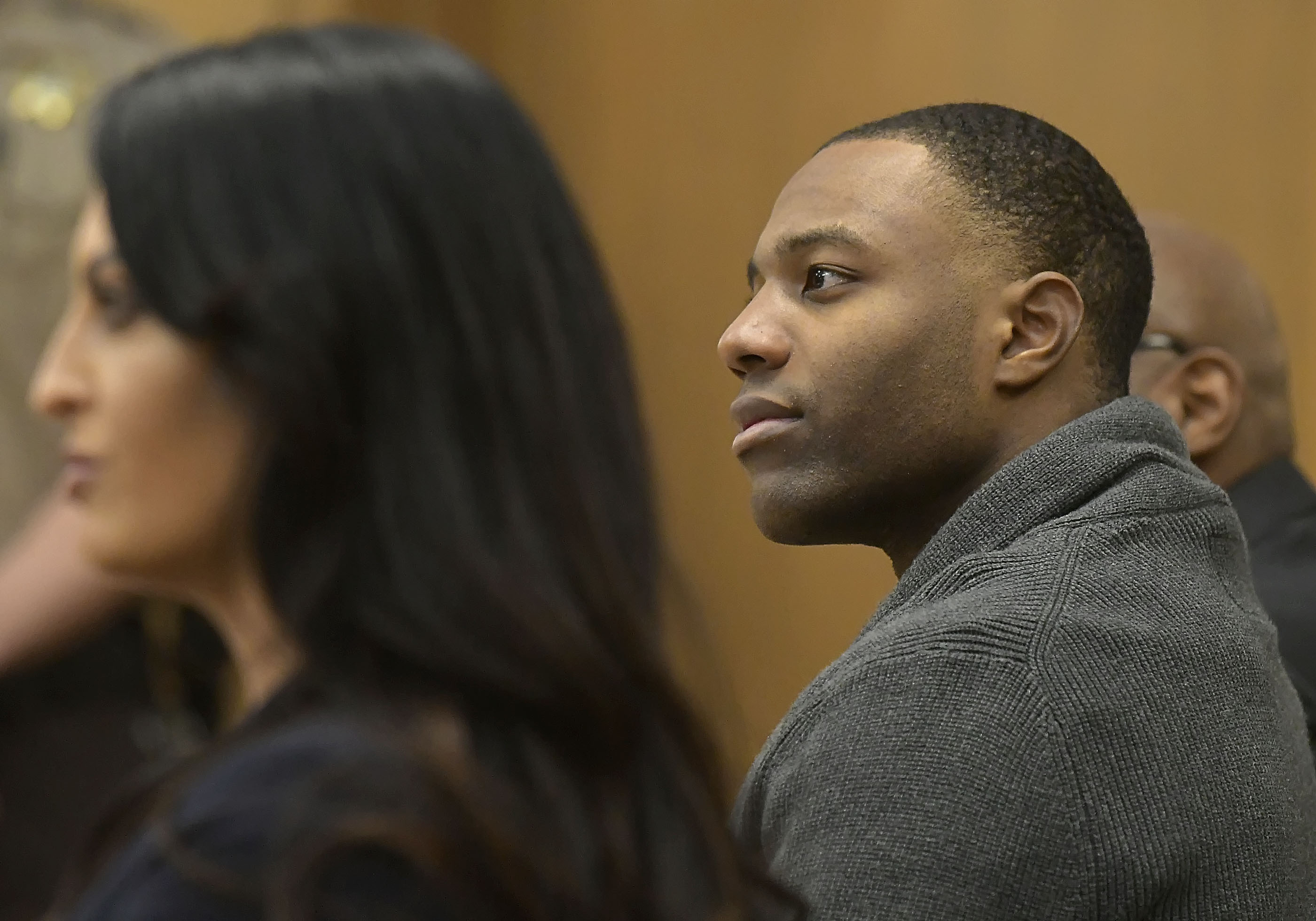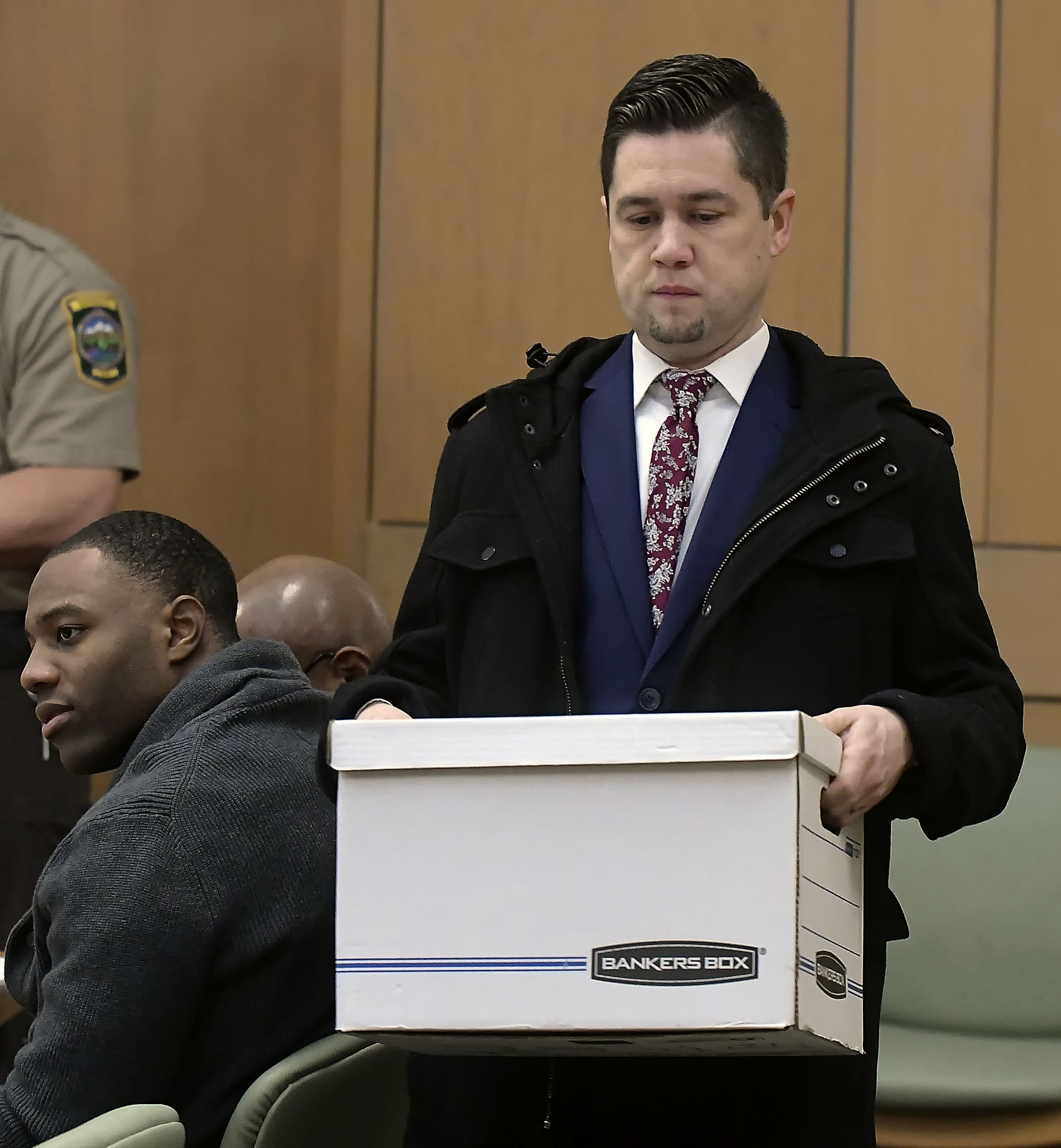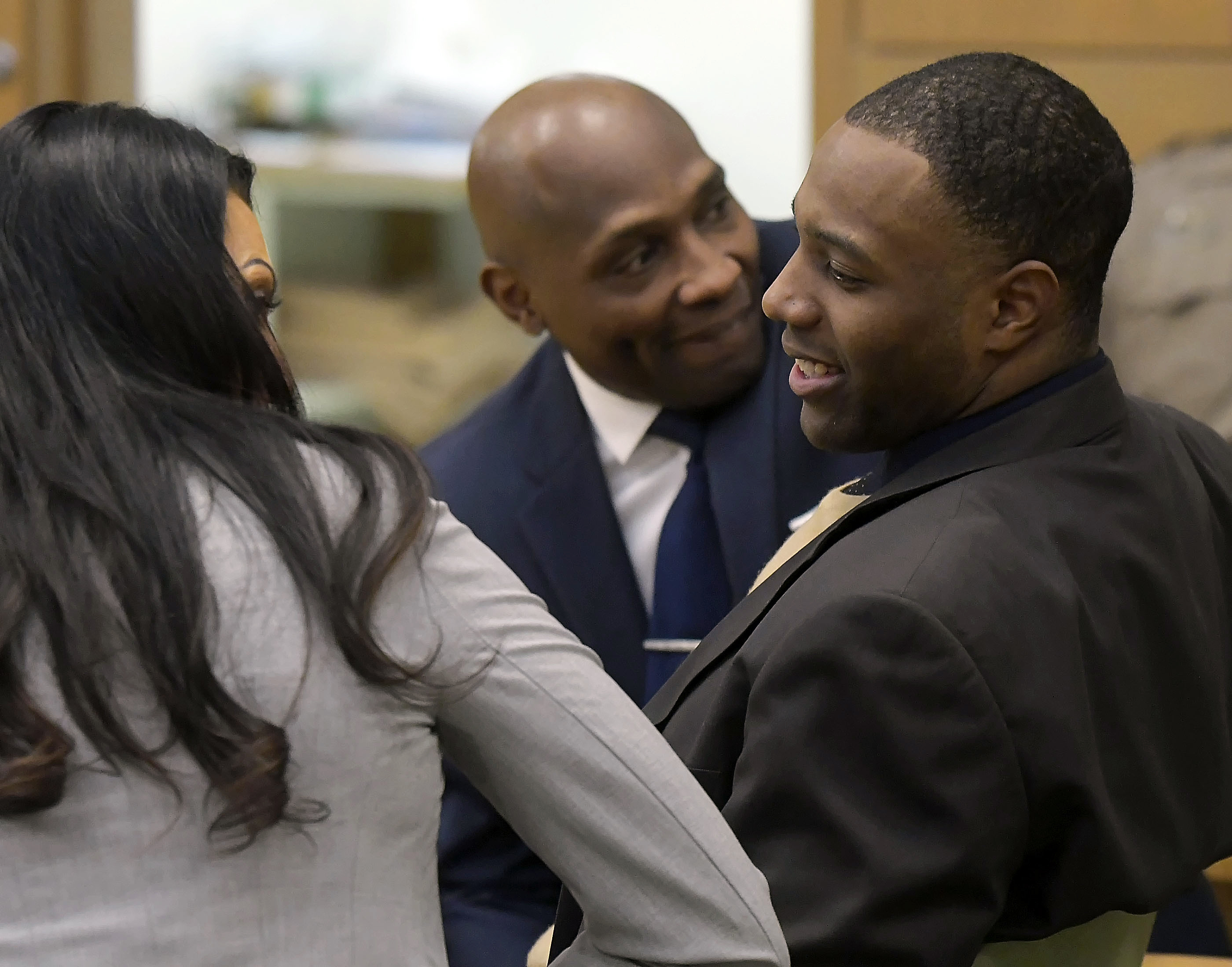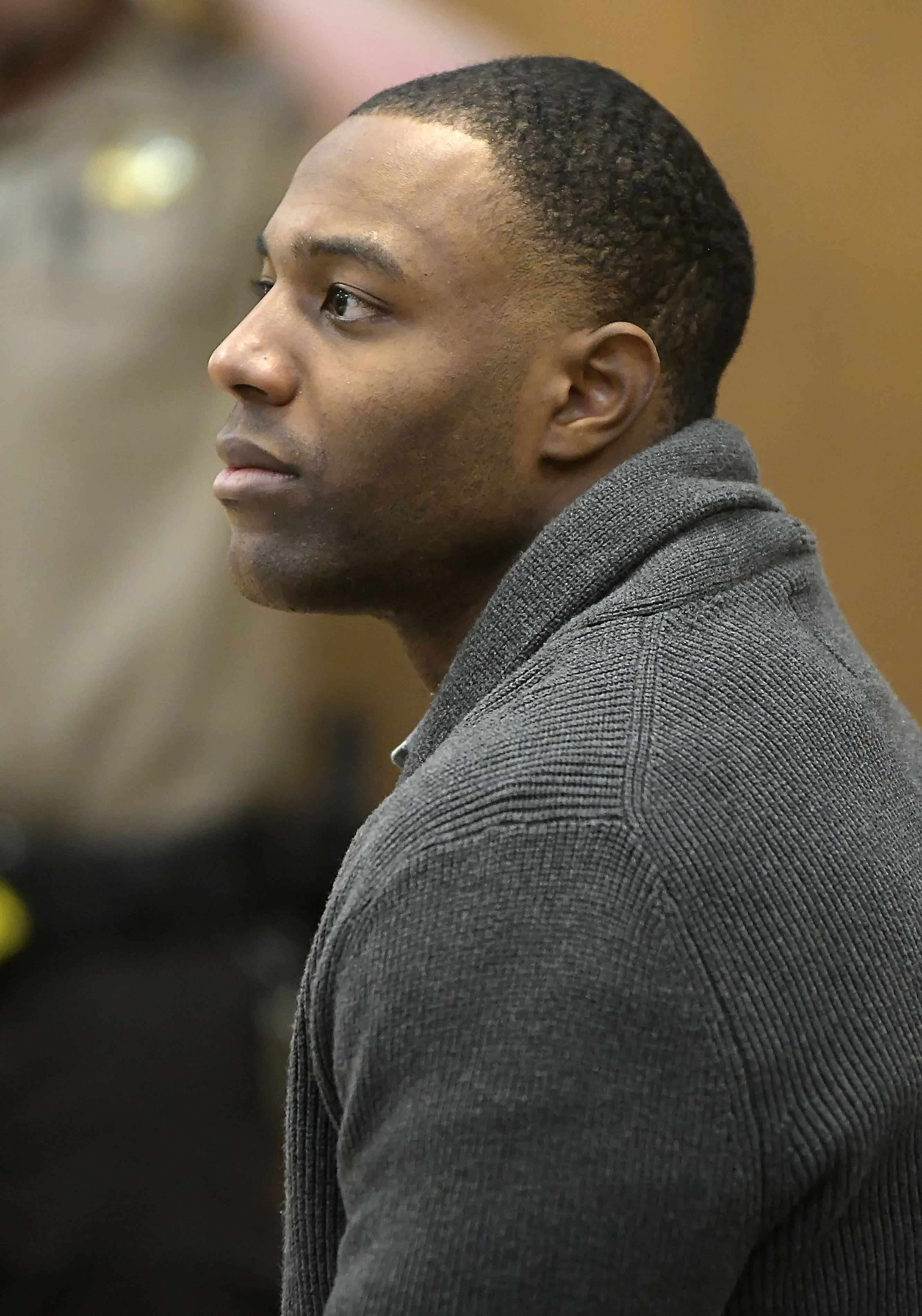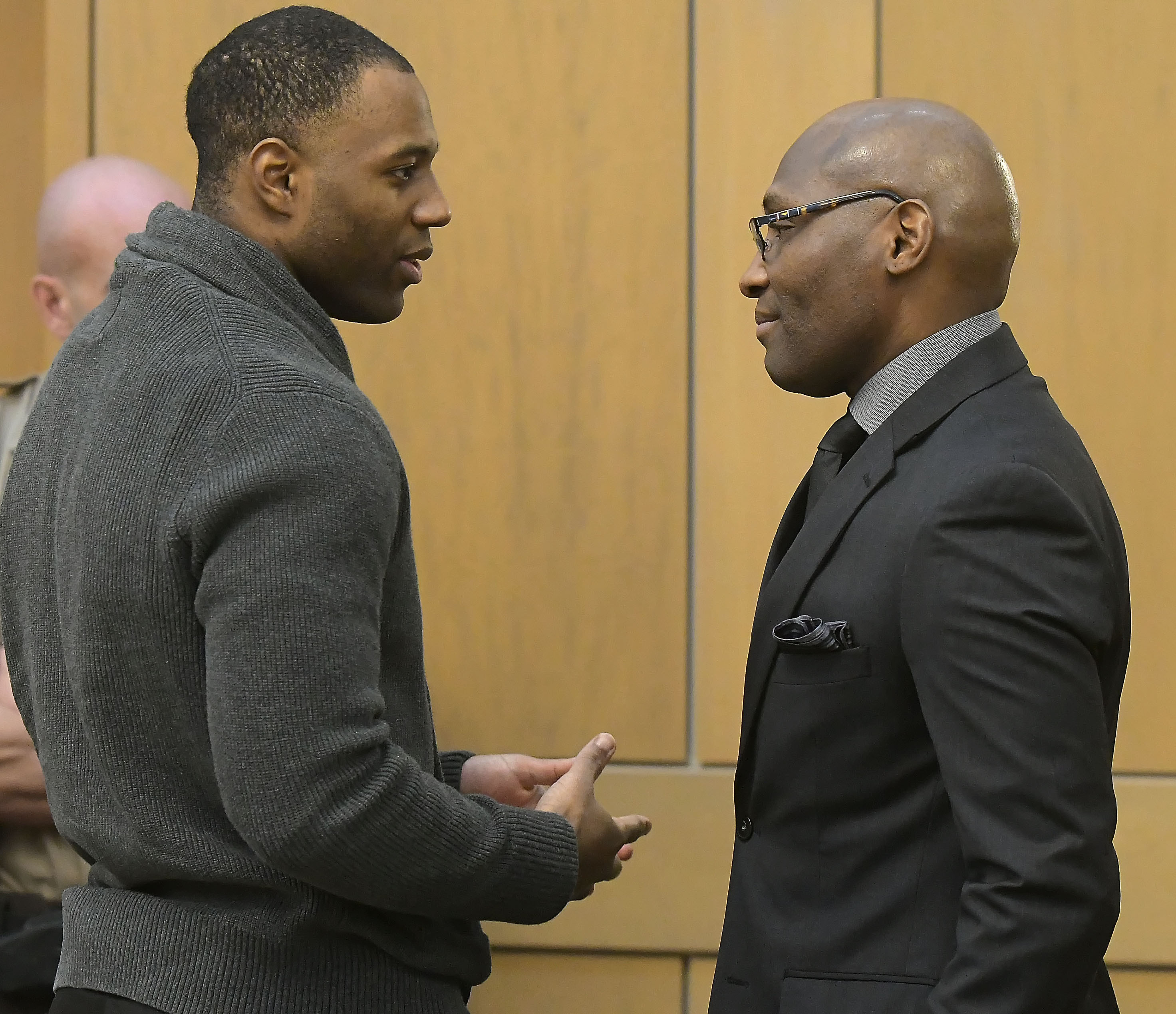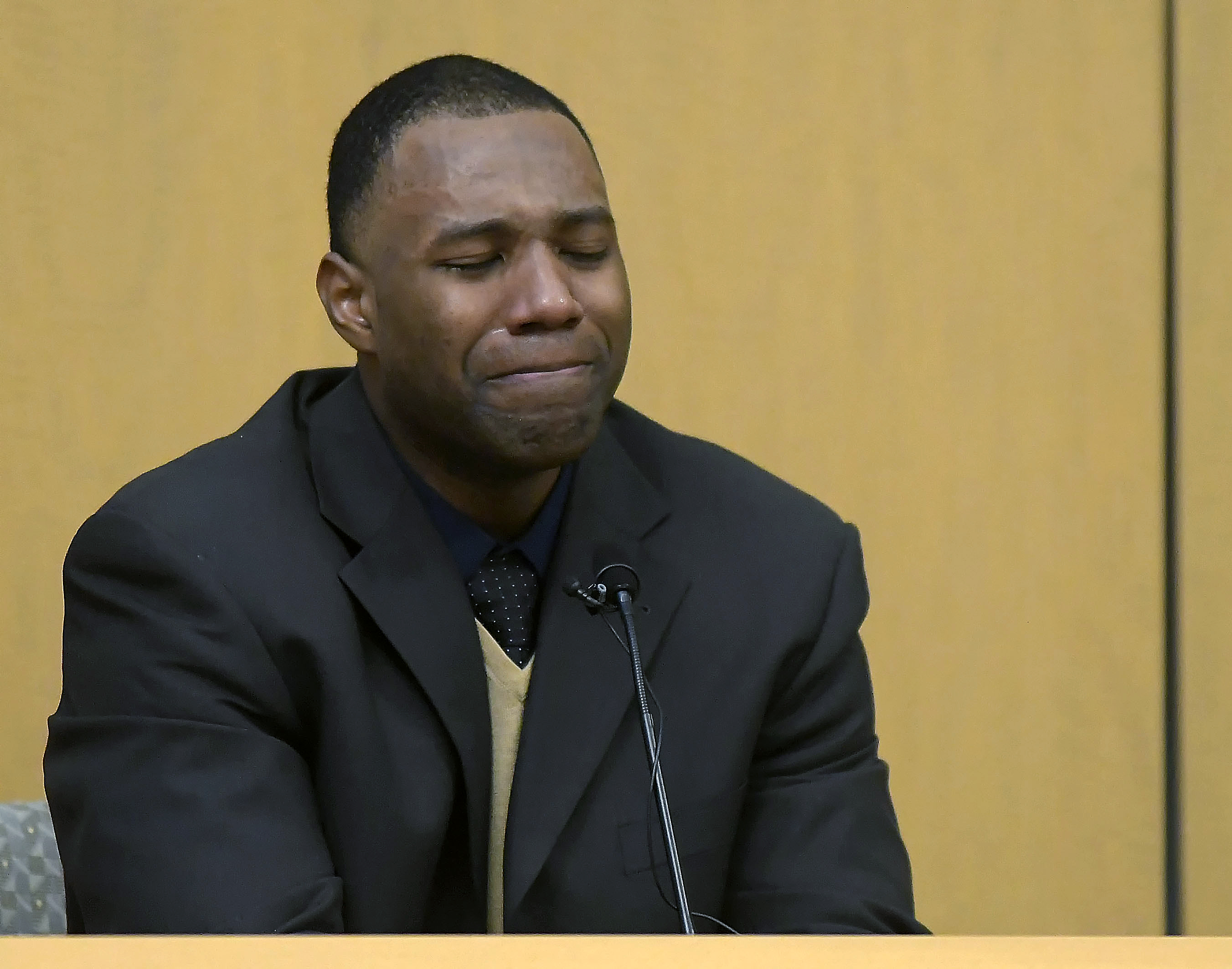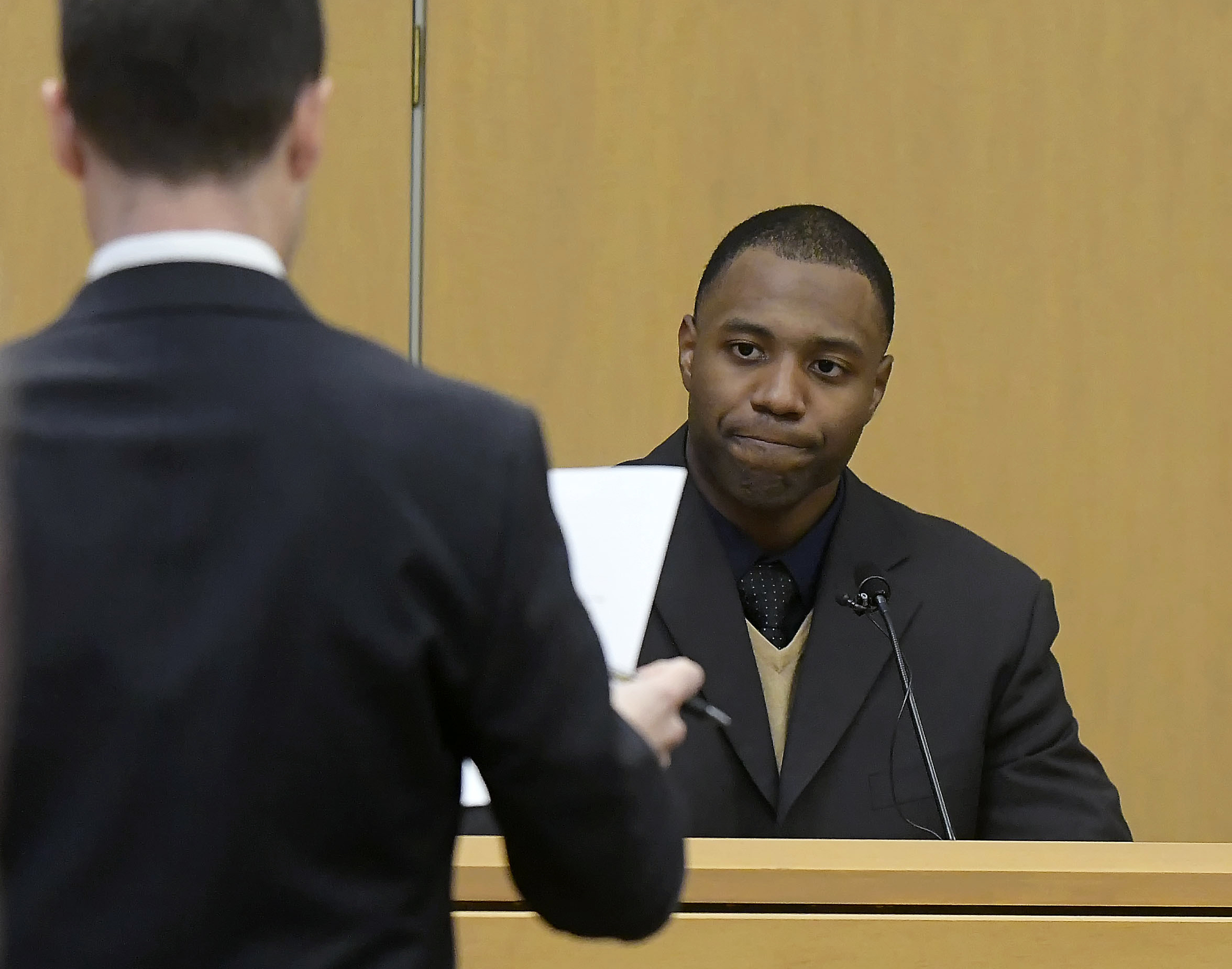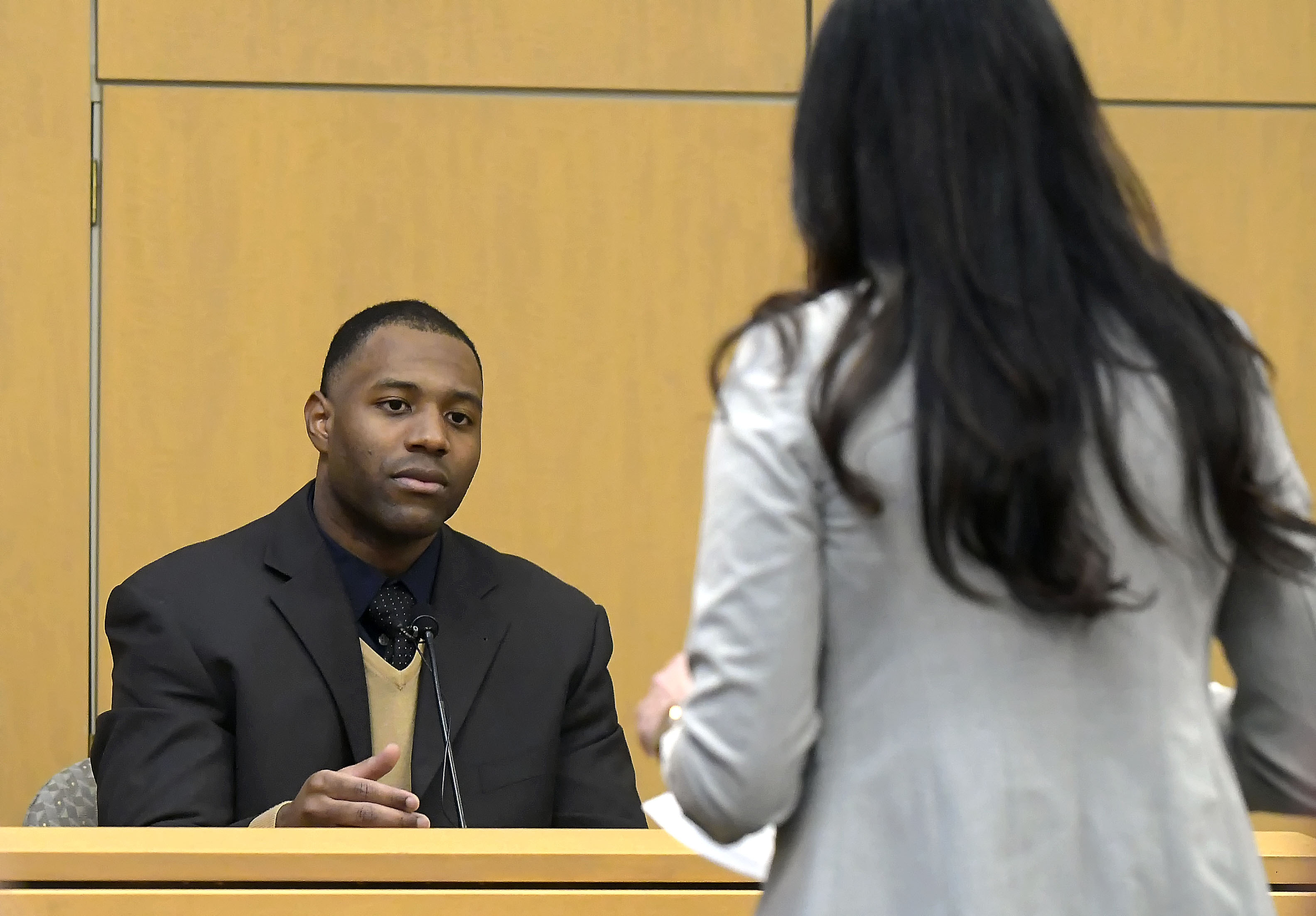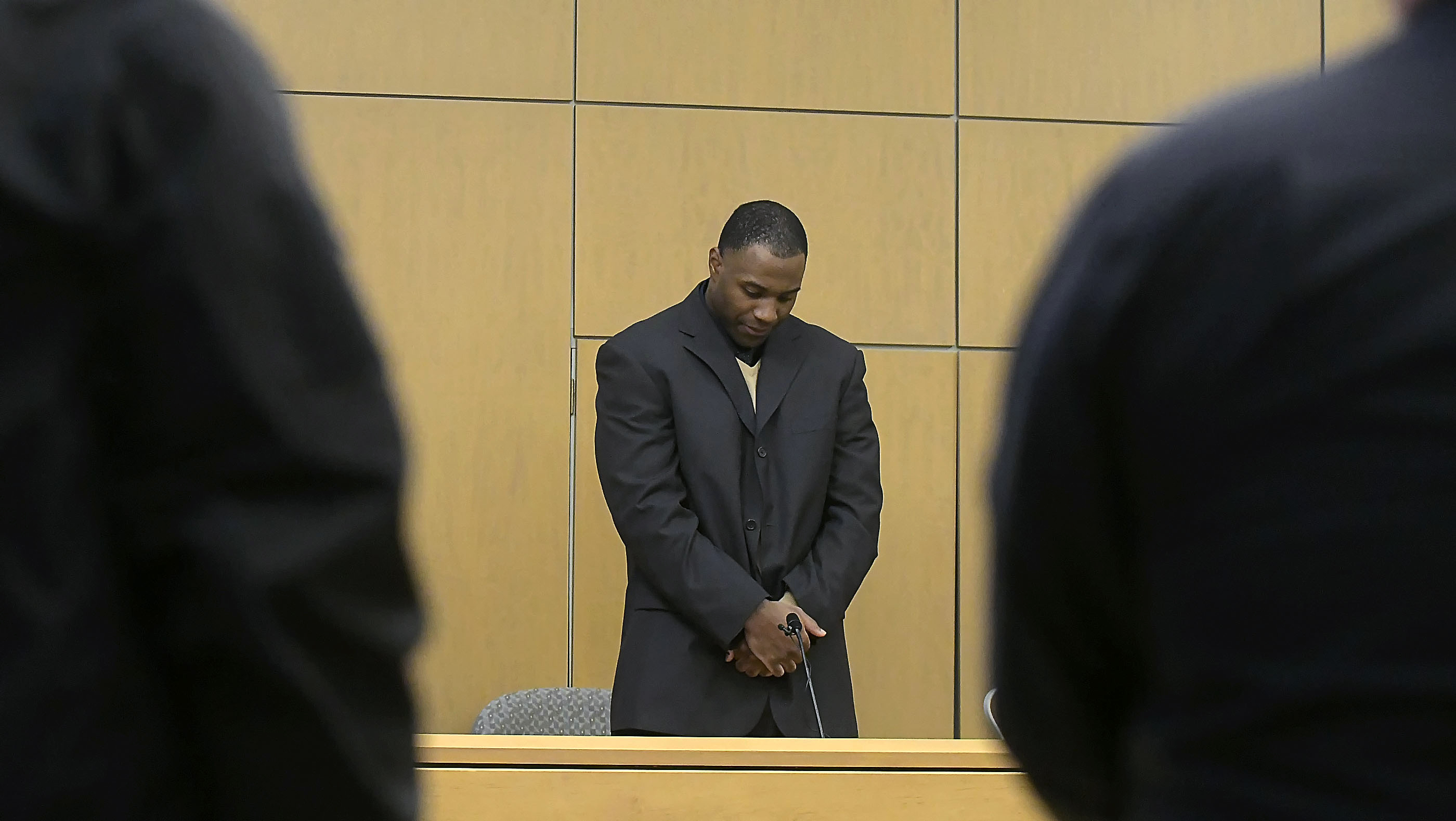Jury’s still out: community awaits Torrey Green verdict
BRIGHAM CITY — A former Utah State University football player’s future is now in the hands of an eight-person jury.
After nine days, Torrey Green’s trial for 11 felony sexual assault charges came to a close Thursday afternoon after prosecution and defense made their closing arguments.
The jury deliberated behind closed doors for about eight hours Thursday and will reconvene Friday morning at the 1st District Court in Brigham City.
“The state has met its burden to prove this case beyond a reasonable doubt,” Cache County Criminal Deputy Attorney Spencer Walsh told the jury in the prosecution’s closing argument. “The law does not require proof that overcomes every possible doubt — it is a reasonable standard.”
Green’s attorney, Skye Lazaro, said the state has not met the standard.
“Reasonable doubt is not just ‘good enough’ or ‘maybe,’” Lazaro said. “Reasonable doubt is the standard in which you would use in conducting your most important affairs — the most important decisions that you would make in your life.”
Green testified in court Tuesday that he had consensual sex with four of the women who accused him of rape, and did not have sex with the other two.
Lazaro argued Thursday morning that four of the accusers reported Green to the police after media coverage of his case in 2016, between one and three years after the alleged rapes occurred.
Walsh then reminded the jury of what a psychiatrist said last week on the stand: the majority of sexual assault victims do not report immediately, if at all.
Walsh insisted that there is no way the women made up false allegations against Green.
“It is impossible for six women who don’t know each other to falsely accuse him of the exact same thing,” Walsh told jurors. “Common sense tells you that to call this a mere stroke of bad luck is completely ridiculous.”
Green’s defense argued that the women had ulterior motives to accuse Green or rape. Some wanted attention, she said, others were bitter about not being asked out again, or worried about what former or future boyfriends would think. But Walsh it was “absurd” that these women would go through the long, painful reporting and testifying process for these purposes.
“These six women gain nothing, absolutely nothing,” from accusing Green of rape, Walsh said. “They get stress, anxiety, nightmares, they get retraumatized.”
Part of prosecutors’ closing arguments included showing a text message Green sent to a friend shortly after the case caught media attention:
“I messed up, OK? I’m the one that f—ed those hoes back in the day,” Walsh read from the printed out copy of the message. “They said that I raped them. Yes, I did. It’s my fault. I’m the one that did it. My life is f—ed up because it’s my fault.”
Lazaro countered that later in the same message, Green wrote in all caps:
“I DID NOT RAPE ANYONE. I WAS SET UP,” the text read.
Lazaro recounted Green’s testimony from Tuesday, where he said he was a “ladies’ man” and had consensual sex with many women in college, but now wishes he hadn’t.
“There’s nothing illegal about hooking up with girls,” Lazaro said. “There’s nothing illegal about one night stands.”
Walsh ended by saying, “I ask you to hold this man accountable. Because he is guilty.”
In response, Lazaro said, “I ask you to stand by your convictions and find Mr. Green not guilty.”

